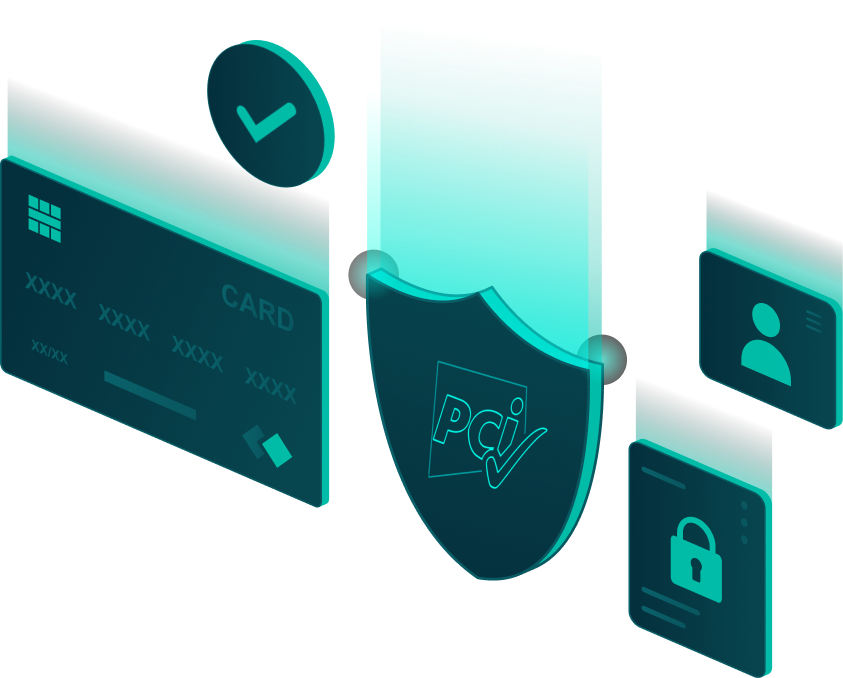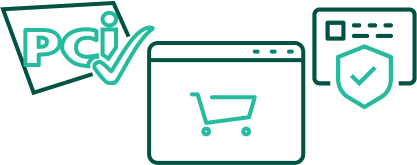






If you operate an ecommerce site, it is mandatory to be PCI compliant. PCI Compliance applies to any business that allows credit card payments, no matter the volume of transactions. PCI Compliance is not restricted solely to storage, transmission, and processing data.
All ecommerce sites must follow the requirements outlined by the Payment Card Industry Data Security Standards (PCI-DSS). Even small merchants should protect their user data because they are also targets for data thieves.
PCI DSS requirements are governed by the major credit card companies to ensure the secure transmission, storage, and handling of cardholder information.
Under PCI DSS, cardholder data is, at a minimum, the full primary account number (PAN), but may also appear in the form of one of the following:
Full Magnetic Stripe Data (or chip equivalent)
PIN code
Expiration date
CVV digits
Service code
Cardholder name and/or surname
This stands regardless of whether you share information digitally, in written form, or you speak to another individual with access to the data.
As a business owner, if you are collecting any payment on your website then you must abide by these requirements.
If a malicious user steals sensitive customer data or cardholder information from a website you’re responsible for, you could incur penalties and large fines. An online business can even lose the ability to accept payment cards.
This can include fines, fees, remediation costs, and lost revenue. Not only will customers lose trust in your brand, but they can potentially take legal action against your company.
You may be required to provide free credit monitoring to your clients if their credit card data has been exposed.
The shame of a breach can ruin a brand’s reputation forever. Recovering from a data breach requires significant investment in reputation management, marketing, and PR.
To be PCI compliant means that, as a merchant, you are doing the minimum required to protect your servers, your customers, and cardholder data (CDE in PCI terms).
If a merchant is found to be noncompliant with the PCI-DSS, there can be a variety of penalties & consequences ranging from:
PCI Non-Compliance Fines
Mandatory Forensic Examination
GDPR Fees
Liability for Fraud Charges
Suspension of Credit Cards
We created a PCI Compliance Requirements Checklist to help understand how to satisfy those requirements, which also includes in-depth explanations of the risks involved and other e-commerce resources.
The Sucuri Firewall will help you achieve many of the PCI requirements by providing a cloud-based Firewall, WAF & Intrusion Detection System for your websites.
The Sucuri Website Firewall offers Professional and Business plans to support your SSL certificate and protect your online store. A Web Application Firewall is the primary requirement in order to become PCI compliant, and not without good reason.
If you have the Sucuri website firewall, you will fulfill the following requirements:
Requirement 1: Establish and implement a firewall
Requirement 2: Harden your environment, disable unnecessary services & configure system parameters to prevent misuse
Requirement 6: Ensure that system components are protected from known vulnerabilities & Address common coding vulnerabilities
Requirement 10: Implement audit trails & Review logs
Sucuri offers a free email course to help website owners understand about today’s e-commerce threats and implement security best practices.
Sign up for our ecommerce security email course to learn about how you can secure your online store and maintain PCI compliance.
What makes Sucuri the best website security for businesses and developers?
Thought Leaders in Website Security
Sucuri Labs offers unique insights that together with our Sucuri Blog help millions of website owners protect their property. This has earned us press and media mentions from top news outlets, industry blogs, and cybersecurity journalists.
A Safe Internet is Our Mission
The Sucuri SiteCheck Scanner automatically scans for hacks and malware. Our guides provide additional help to prevent or fix website hacks on your own. Read how our customers have used us through the years, which has given us over 70 customer studies.